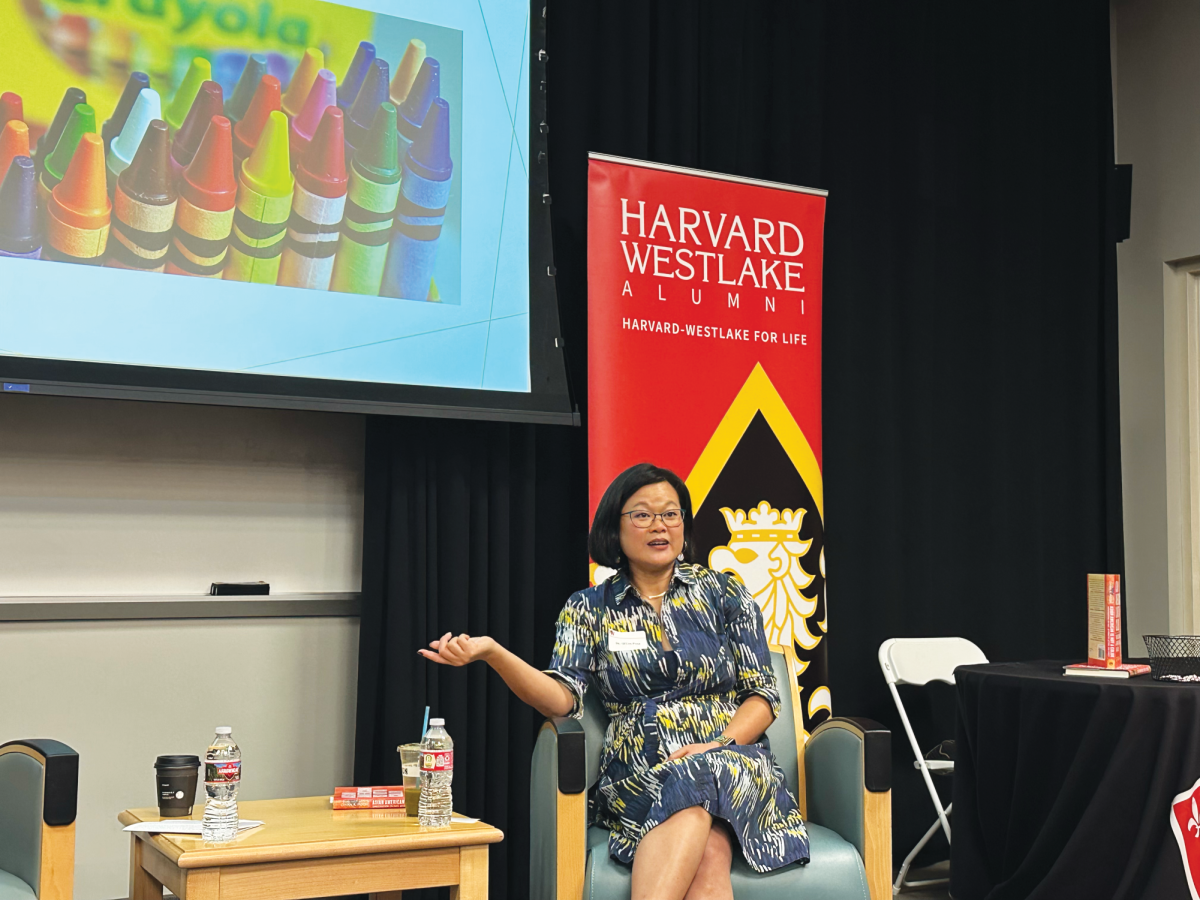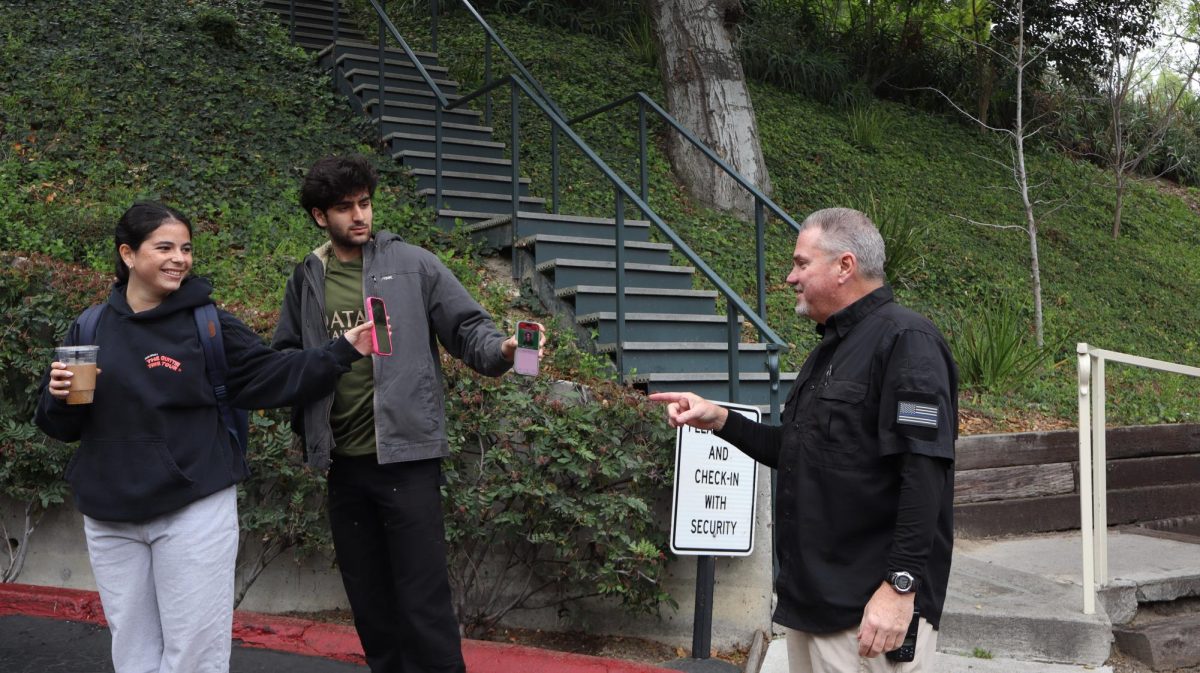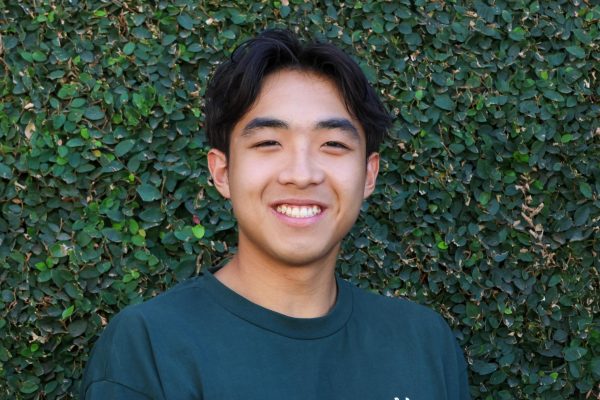The Harvard-Westlake Student Alumni Association (HWSAA) and Asian Students in Action (ASiA) invited Dr. OiYan Poon to speak about her newly published book, “Asian American is Not a Color,” in Ahmanson Lecture Hall on Oct. 29. Poon discussed her Asian American identity and talked about affirmative action in the college admission process alongside Upper School Dean Jamie Chan and alumna Elsie Lai Mendoza ’94. There was also a raffle held for signed copies of Poon’s book.
Mendoza, a former HW student, said that as one of the only Asian Americans at the school, she felt that she lacked the opportunity to learn about her culture and identity.
“Harvard-Westlake now, in the most wonderful, beautiful way, is so much more diverse than it was 30 years ago,” Mendoza said. “We had an Asian affinity group called ASiA, which only had 20 or 30 students out of 700 kids. It was a different experience. I had a diverse group of friends, but I didn’t really have an understanding of my identity as we didn’t study Asian American Studies. Most, if not all, K through 12 schools didn’t offer Asian American history or literature necessarily, or some kind of education or understanding about the Asian American experience.”
Poon said it was false that Asian Americans were hurt by race-conscious admissions. She said she conducted research to prove that Asian Americans actually benefited from affirmative action and collaborated with many other professionals in her field of research.
“I led the authorship of a research brief,” Poon said. “We got over 1,240 social scientists, researchers across the country, professors, faculty and research scientists across the country to sign on, and many of them have their work that was cited in these briefs to demonstrate all the different ways Asian Americans benefited from race-conscious admissions, specifically and directly and more broadly in terms of the educational benefits of diverse campuses. And additionally, we also pointed out research that showed that the majority of Asian Americans for the last decade-plus have actually been supportive of affirmative action policies.”
Chan said as both an Asian American and as a mother, she felt that she related to what the other panelists discussed.
“What I liked hearing the most were the stories of Elsie, her alumni friends, the parents in the audience and their stories and what they ring and how they talk to their children because I’m a mom with two young kids,” Chan said. “I enjoyed the stories of how they navigated and discovered their own Asian-ness because I think it’s a constant journey, and everyone’s in a different part of it.”































